Robert George is the McCormick Professor of Jurisprudence and Director of the James Madison Program in American Ideals and Institutions at Princeton University. He holds J.D. and Master of Theological Studies degrees from Harvard, as well as D.Phil., Bachelor of Civil Law, Doctorate of Civil Law, and D.Litt. degrees from Oxford. In 2009, the New York Times called him “the country’s most influential conservative Christian thinker.” Given the wry tone of the piece, it was not meant as praise. But if one values intellectual humility and academic rigor, it should be. More, Professor George’s ability to communicate complexity and nuance with brevity and clarity (and his frequent use of X) does make him more widely accessible than one might assume for a person with multiple advanced degrees and 22 honorary doctorates.
I first met Robbie (“Robbie” is the only way I’ve ever heard him introduced) when I was an Executive Producer at Fox Digital. This was mid 2021, and I was exploring a series on the philosophical roots and practice of conservatism (like a mini version of Carl Sagan’s Cosmos, though a journey through thought rather than the universe). This wasn't a political project - my interest is much more in how one arrives at a conclusion than the conclusion itself; and a similar series with, say, Cornell West from the left would be equally as interesting - but at the time, a series designed for broad appeal on how the party of Lincoln became the party of Trump seemed more (and I generally avoid this word for all its overuse) urgent.
For a variety of reasons, the project never happened. But now that I get to make all the editorial decisions at Civil, I wanted to revisit the idea. In this podcast, we covered the Congressional testimony of Claudine Gay and Liz Magill, Israel and Hamas, DEI initiatives on campus, Critical Theory, the great books, Donald Trump, Robbie’s friendship with Cornel West, the meaning of freedom, and more.
Robbie positions our moment in history as the Age of Feelings. Contrast this with the Age of Reason or the Age of Faith where reason or God (or, more often, a mix of the two) was the touchstone for goodness and truth. Today, “People treat feeling as the ultimate arbiter of right and wrong, of truth, of goodness, of justice. And feeling is just not up to that task. Emotion is not up to that task.” It’s a step backward from the millennia of effort to overcome the pure power struggle in the state of nature.
A casualty in this Age of Feelings is truth. Robbie recalls Plato’s dialogue, the Republic, where Socrates argues for the importance of a life devoted to truth-seeking. In opposition is Thrasymachus, the sceptic who believes “that all so-called truth is a quest for power, is a mask for power. That the person who has power gets to dictate what truth is.” Robbie adds,
… the problem right now is lots of people don't believe, and especially lots of young people don't believe in truth, really. They believe in power… and if you get the power, you get to dictate what's true and what's not true. Well, that's a deeply corrupted vision. And I think we need to push back very, very hard against that. We need to recover the idea of truth and truth-seeking.
This is where Professor Cornel West - the Dietrich Bonhoeffer Chair at Union Theological Seminary, “non-Marxist socialist,” and current independant Presidential candidate - and Robbie George are in fierce agreement. They first met at Princeton almost three decades ago. In the 2000s, they taught Great Books seminars together where they discussed works from Sophocles to John Locke to Martin Luther King Jr. Their many joint appearances include the original Firing Line with William F. Buckley Jr. and more recently with Margaret Hoover. In increasingly divisive times, they’ve been the model of a civil conversation.
What bonds them together - across widely divergent political views - is their faith and humility. Both acknowledge their own fallibility, and believe that an unsettled life - one in which you are constantly open to opposing views - is essential to living, and dying, well. Indeed, this is the entire point of freedom.
If you don't have freedom of speech, freedom of the press, freedom of religion, if you don't have those fundamental civil liberties, you can't have a truth-seeking enterprise. Universities can't be true to their mission as truth-seeking institutions if you don't have that freedom. It's the people who think that truth isn't really what matters, that there is no truth, that what really matters is power, who are perfectly happy to destroy freedom. Because freedom is of no use as far as they're concerned. It's all about power. Freedom is only of use, only of value… if you believe there's a truth that needs to be sought and you need freedom to seek it. (Italics mine)
In 2024, this all seems more urgent than ever.







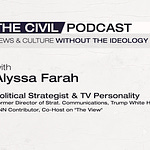

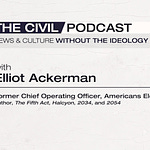



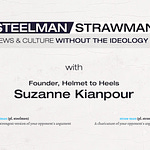

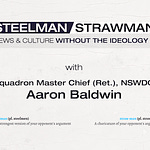

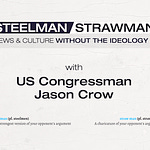
The Civil Podcast 001